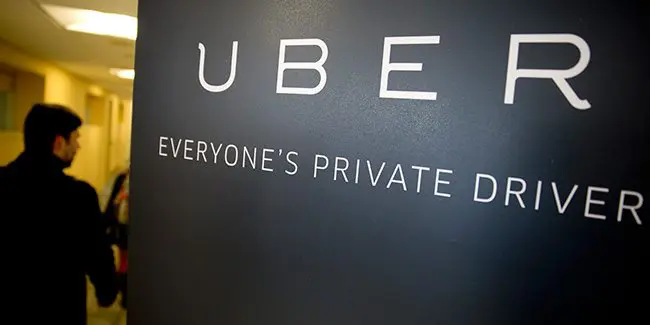Uber’s main British business paid only £411,000 in tax last year while the commission fees from thousands of drivers in the UK disappeared into a controversial tax structure in the Netherlands, reports The Guardian.
The latest accounts for Uber London Ltd show the UK company’s turnover doubled to £23.3m last year, but all of this income was earned by providing unspecified “support” to other companies within the taxi-app group, and not from driver commissions.
After deducting expenses, this small subsidiary, which employs 105 staff, made a profit of £1.8m and paid tax of £411,000.
Meanwhile, accounts for the company’s international sales hub in the Netherlands reveal that commissions from drivers in London and scores of other cities around the world were booming in 2015, pushing revenues up to $520m (£420m).
This was more than seven times the figure for 2014. Passengers pay their fares directly to drivers, who automatically hand over a commission fee to Uber that ultimately appears in the group’s Dutch accounts.
Uber International BV is one of a handful of companies in the Netherlands that together form the core of the group’s complex tax planning arrangements, helping minimise its tax bills around the world.
Details about Uber’s aggressive tax planning come as the group separately fights claims that it is aggressively exploiting UK employment laws. The US corporation is being sued by a group of UK drivers who say they should be classified as employees of Uber, which would allow them to receive a range of benefits. A court judgment in the case is expected to be release this month.
Alex Cobham, research director at campaign group Tax Justice Network, said: “Uber’s UK accounts confirm the extent to which major multinationals are impervious to policymakers’ rhetoric, and willing to take full advantage of both the weaknesses of international tax rules and of the absence of transparency.”
Anneliese Dodds, Labour MEP and tax campaigner, said: “Compared to the way you pay for ordinary taxis, this kind of structure [used by Uber] is ridiculous … There is quite a lot of evidence it depresses wages and taxes.”
In a statement, Uber said: “The vast majority of the revenue generated by our technology goes straight into the pockets of drivers who use our app and so stays in the local economy. We look forward to expanding to more cities and creating more economic opportunities in the months to come.
“While we recorded a profit here last year, globally we make a loss as we are a young company that is still expanding and investing heavily. Uber is also creating thousands of economic opportunities in every city we operate in.”
Uber is the latest US tech company to resist pressure from British politicians to abandon its controversial tax structure and bring its UK business onshore.
In her speech to Conservative party conference this month, Theresa May said she was determined to tackle tax avoidance. “If you’re … an international company that treats tax laws as an optional extra,” she said. “I’m putting you on warning. This can’t go on any more. A change has got to come.”
Similar threats have been made by previous leaders. In 2013, David Cameron said: “When some businesses aren’t seen to pay their taxes that’s corrosive to the public trust. Some forms of avoidance have become so aggressive that I think it is right to say these are ethical issues and it is time to call for more responsibility. This is an issue whose time has come … [Multinational companies should] wake up and smell the coffee.”
A year later, the then chancellor, George Osborne, said: “Some technology companies go to extraordinary lengths to pay little or no tax here … If you abuse our tax system, you abuse the trust of the British people. And my message to those companies is clear: we will put a stop to it.”
In the run-up to the 2015 general election, Osborne announced the introduction of a punitive tax on those multinationals artificially shifting revenues from Britain to overseas operations in order to lower their tax bills.
However, reaction from big international businesses to this measure – known as the diverted profits tax – has been mixed. Amazon and Facebook have unwound their controversial arrangements for shifting UK sales overseas. But others, including Google, eBay and Uber, appear to have left their arrangements largely unchanged.


